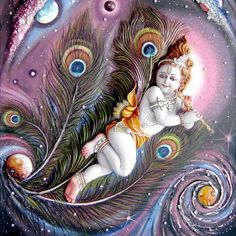The question is, should we always be able to quote what are our only sources of authority, Guru – Sastra – Sadhu, anything that we affirm, verbally or in writing?
In our case, as a form of introduction we say that most of the articles I publish are written by me, although sometimes I don’t include the signature.
Some others are “mixed”, that is, I take articles from others and, for various reasons, modify them.
Other times I publish articles entirely written by others without changing anything, as in the case of the Ekadasi series, which were published in the book “Ekadasi, the day of Lord Hari”, by Krishna Balarama Svami.
My archive is made up of about 200,000 files and more are added every day. Many of these have been downloaded by me over the years or have been sent to me. So dates and places get lost in time and I can’t say who sent them to me or when.
One point that many devotees don’t take seriously is the quote.
If one says “sastra says that” he has to say which sastra and where? If you are not able to quote, don’t say “sastra says”. Simply say “I think that”.
If you tell a story it would be better to say who wrote it and where you found it. Unfortunately this is not done, for various reasons, not all regrettable. Obviously if you are not able to quote doesn’t mean that the story is false.
We have as main source of knowledge the books of Srila Prabhupada, since he is the Guru.
But Guru is not the only authority, although it remains the main one for us. There are also the other two.
For example Sastra, which are divided into Sruti and Smriti. Sruti are the Vedas and the Upanisads. Smriti are all the others.
The problem of Sastra is that has mostly been written in Sanskrit, a language that we unfortunately don’t know. And then we have to rely on translators and commentators, some of whom are perfectly trustworthy (like Guru and Sadhu), others less, and others not trustworthy at all.
Certainly after many years of practice and study one can verify whether this translation and explanation is reliable or not, as in the last articles written by me where I report errors in the interpretation of the word “daivi” and on the concept that “Krishna and Balarama come from the hair of Narayana”.
Sastra is certainly a gigantic body of literature.
And Sadhu. Great personalities such as Ramanujacarya, Madhvacarya, Rupa Gosvami and the other Gosvamis of Vrindavana, Visvanatha Cakravarti, Baladeva Vidyabhusana and all the others (so many as to be a problem to list them all) are by no means inferior to Guru and Sastra.
But the problem of language is the same. Most of that literature was written in Sanskrit and Bengali. And so, who translates these works and explains them are they reliable or not?
Having said all this, the problem of quotations certainly remains archiving, indexing and research. If I had such a functional archive when one asks me, but who says this and where? I would be able to quote.
But a parenthesis should be opened.
Most of us are teachers in lands where this culture is foreign and our goal is to make people understand what you are saying and also to attract them to what we are saying. Simplicity often helps. Over quoting has may have the result of the speaker looking very scholar but it doesn’t help the listeners.
In the past I realized that when I said many quotes, sometimes superfluously, I saw people getting bored. If I say “we are not this body”, reciting the verse of Bhagavad-gita 2.13 is sufficient and it is not necessary to recite the entire half of the second chapter.
Even in writing, how many verses do we have to quote before people close the book because it’s too heavy for them?
And therefore, kala, desa, patra. Sometimes it is useful to go into a lot of quotes and other times not.
Surely if I had worked all my life on studying Sanskrit and organizing an archive of Sruti and Smriti, today I would be able to quote anything you ask me.
– Manonatha Dasa (ACBSP)
Jan 8 2020
Post view 663 times




Leave a Reply